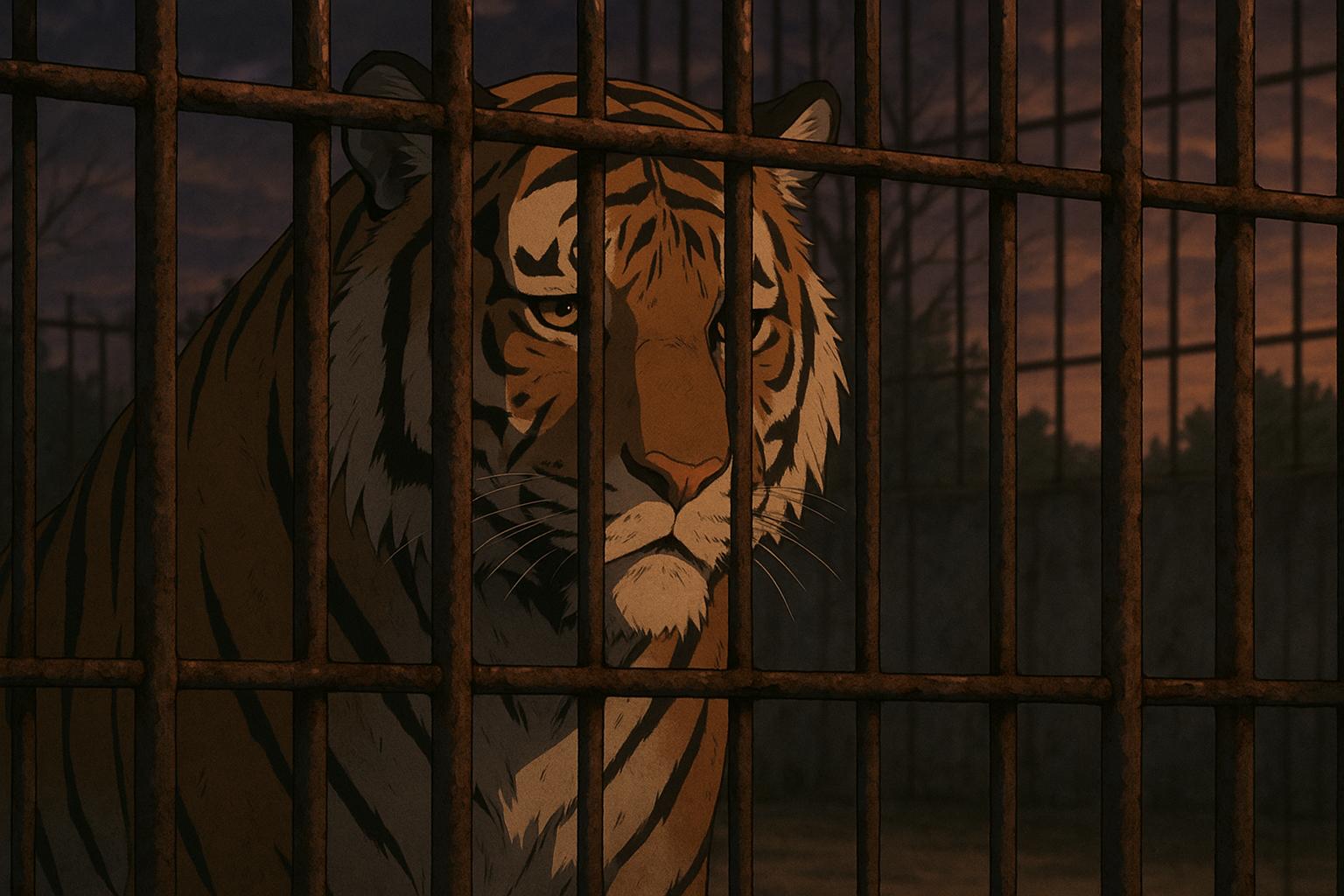The impending closure of South Lakes Safari Zoo, often referred to as the “worst in the UK,” stands as a poignant reminder of the ongoing challenges within the realm of animal welfare in captivity. The zoo, located near Dalton in Cumbria, is slated to shut its doors permanently at the end of December 2024, after a series of troubling allegations regarding the treatment of animals came to light. These accusations, ranging from overcrowded enclosures and unclean habitats to direct claims of animal neglect and even fatalities, have marred the zoo's reputation for years, culminating in a decision that has sparked a mixture of relief and concern among animal welfare advocates and the general public.
The decision to close follows an extensive history of scrutiny, particularly after a tragic incident in 2013 where keeper Sarah McClay was mauled to death by a tiger, an event that led to the zoo being fined £297,500 for multiple health and safety breaches. Reports indicate that between 2014 and 2017, a staggering 486 animals died under the zoo's care, raising significant alarms regarding operational standards and animal treatment. In light of persistent criticisms, Westmorland and Furness Council imposed stricter conditions on the zoo’s licence following inspections that highlighted several “major causes for concern,” notably inadequate safety measures.
Moreover, recent investigations revealed distressing circumstances wherein animals were reportedly left in deplorable states — an “emaciated” meerkat struggling for warmth and a newborn kangaroo that met its tragic end by drowning. The allegations prompted animal rights groups, like Freedom for Animals, to call for immediate reforms to ensure that basic welfare standards were met. One undercover report captured a keeper discussing the unfortunate death of a kangaroo likely linked to a disease exacerbated by stress and inadequate diet, further compounding the zoo's reputation for failing to provide a humane environment for its inhabitants.
Despite this catastrophic backdrop, the zoo's management, particularly the Cumbria Zoo Company Limited (CZCL), has aimed to reshape the narrative surrounding its operations. They emphasised their attempts to protect endangered species, such as white rhinos, and to provide veterinary care, pointing to improvements made under their stewardship. Karen Brewer, the chief executive, maintained that animal welfare remained a top priority and assured that the zoo would work closely with animal welfare consultants to relocate animals to more suitable environments as the operation winds down.
However, the transition to a new facility in Tebay, approximately 40 miles away, has not alleviated concerns. The landowners, Zoo Investment Company (ZIC), announced plans to oversee the welfare of the remaining animals and commit to constructing larger, more natural enclosures. They asserted that this new direction aimed to foster biodiversity while improving animal conditions, a stark contrast to the legacy left by South Lakes Safari Zoo.
As the zoo prepares for closure, the local council continues to monitor the situation closely. They affirmed that while the zoo remains licensed during the transition period, it is imperative that compliance with animal welfare regulations is upheld even in the wake of its operational shutdown. The council has also received applications for new licences that reflect a commitment to ongoing scrutiny and reform in animal care practices within the area.
Amid the closure, the zoo has invited supporters to celebrate its legacy before it officially shuts its doors, outlining plans to engage visitors with guided tours and farewell activities. Yet, as animal welfare organisations continue to advocate for a more humane approach to captive wildlife, the fight for better standards in zoos across the UK remains more crucial than ever.
In conclusion, the closure of South Lakes Safari Zoo is emblematic of a broader reckoning within the zoological community. The responses from various stakeholders—including councils, animal rights groups, and management—highlight the complexity and importance of ensuring that animal welfare is placed at the forefront of wildlife conservation efforts. A new beginning may emerge in Tebay, but it must be built on principles of compassion and respect for all living beings.
Reference Map
- Paragraphs 1, 2, 3, 4, 5, 6, 7, 8, 9
- Paragraphs 2, 3, 4, 5, 6
- Paragraphs 1, 2, 3, 4
- Paragraphs 1, 3, 4, 5
- Paragraphs 1, 2, 3, 4
- Paragraphs 1, 2, 3
- Paragraphs 1, 2, 3
Source: Noah Wire Services
